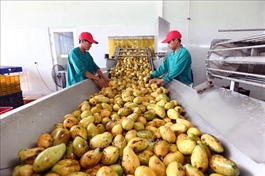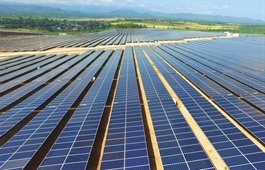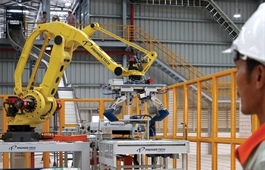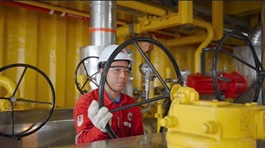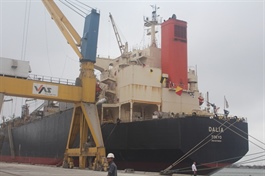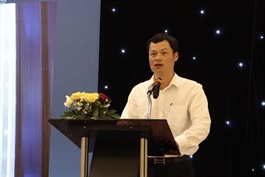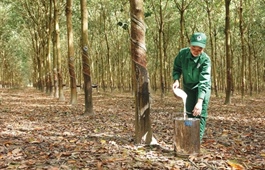Eco-transformation keeps Vietnamese IPs competitive
Eco-transformation keeps Vietnamese IPs competitive
The shift towards eco-industrial park models is a strategic opportunity for Vietnam’s industrial areas to optimise costs and enhance competitiveness globally, insiders have said.
At a forum on transformation towards eco-industrial parks (eco-IPs) held on June 25 in Ho Chi Minh City, Giang Ngoc Phuong, deputy CEO of the Hiep Phuoc Industrial Park, said that dozens of enterprises within the park have begun transitioning towards more sustainable operations.
“Thirty pioneering companies adopting the eco-IP model have reportedly doubled their output within just three years. Green transformation may be painful at first, but it’s worth it. Once products meet the sustainability standards increasingly demanded by global markets, business performance follows,” Phuong said.
Initially, some firms expressed concerns about technological confidentiality and additional costs. However, early engagement with international experts and a clearer understanding of long-term benefits have led to a shift in mindset, according to Phuong.
“Collaborative initiatives such as shared training costs and industrial symbiosis, repurposing by-products like ash and waste clay into building materials or converting metal scraps into new products, have proven effective,” Phuong added. “These not only reduce operational expenses but also strengthen in-park cooperation, reinforcing a sustainable ecosystem.”
From a technical standpoint, industrial development expert Tran Tan Sy noted that the upfront investment for an eco-IP may be about 10 per cent higher than that of a traditional model. However, these parks can help businesses save 2-3 per cent annually on operational and business costs.
“With fully developed infrastructure and ready investors, value creation and market expansion become more achievable,” Sy explained.
From the construction and operations angle, Nguyen Trung Kien, director of Vilandco and a board member of the Vietnam Green Building Council, emphasised that more investors are pursuing environmental certifications and sustainable models to reduce environmental impact.
“Green transformation is not just a responsibility, but a competitive edge for attracting high-quality capital,” Kien said. “The earlier you implement an eco-IP, the greater the competitive advantage. First movers always enjoy significant benefits.”
Such parks are also viewed as a critical foundation for accelerating green transportation initiatives. According to Stefan Kaufmann, founder and CEO of Eboost, the shift to electric vehicles (EVs) and sustainable mobility solutions is essential for eco-IPs.
“Because these parks concentrate factories, logistics hubs, and industrial services, they offer predictable traffic flows for staff, fleet, and cargo. This enables high infrastructure utilisation. Moreover, eco-IPs benefit from policy incentives under green growth frameworks,” Kaufmann said.
Implementation typically begins with pilot projects and EV infrastructure upgrades in industrial areas. For instance, Eboost is currently piloting EV charging solutions. The next stage involves planning advanced EV charging networks within eco-IPs, including charging stations for e-motorbikes, electric cars, and trucks, as well as optimising existing stations using solar energy.
“These efforts are paired with the integration of EV infrastructure into eco-IP master plans and the development of green logistics hubs, initiatives expected to reduce CO2 emissions and boost the use of renewable energy,” Kaufmann added.
Tran Viet Huy, CEO of transporting agency TRA-SAS and head of Customs and Trade Facilitation at the Vietnam Logistics Business Association, said his firm is striving to become a green and transparent logistics partner.
He said TRA-SAS is collaborating with and learning from foreign-led enterprises and has already adopted VertZéro software to manage and report carbon emissions.
“The drivers of environmental, social, and governance implementation include customer demand, financial institutions, internal awareness, and regulatory compliance. Effective strategies can enhance brand value, reduce costs, and attract investment,” Huy said.
He noted that developing green logistics in industrial areas still faces major challenges. Infrastructure is overly road-centric, limiting access to low-emission alternatives like rail or waterways.
“Moreover, when industrial areas overlap with urban areas, air and noise pollution drive up logistics costs. Other obstacles include barriers to renewable energy adoption, limited investment in low-emission logistics infrastructure, and a lack of incentives for EV charging,” Huy added.
Le Hoang Anh, founder and CEO of Eco-Truck, emphasised that business-to-business (B2B) road freight is a vital segment of Vietnam’s logistics sector but remains underfunded and overlooked.
“Our goal is to optimise operational costs and build an ecosystem centred on road transport service providers, especially in the B2B segment. The company is leveraging technology to scale B2B logistics services nationwide,” said Anh.
- 15:00 16/07/2025



